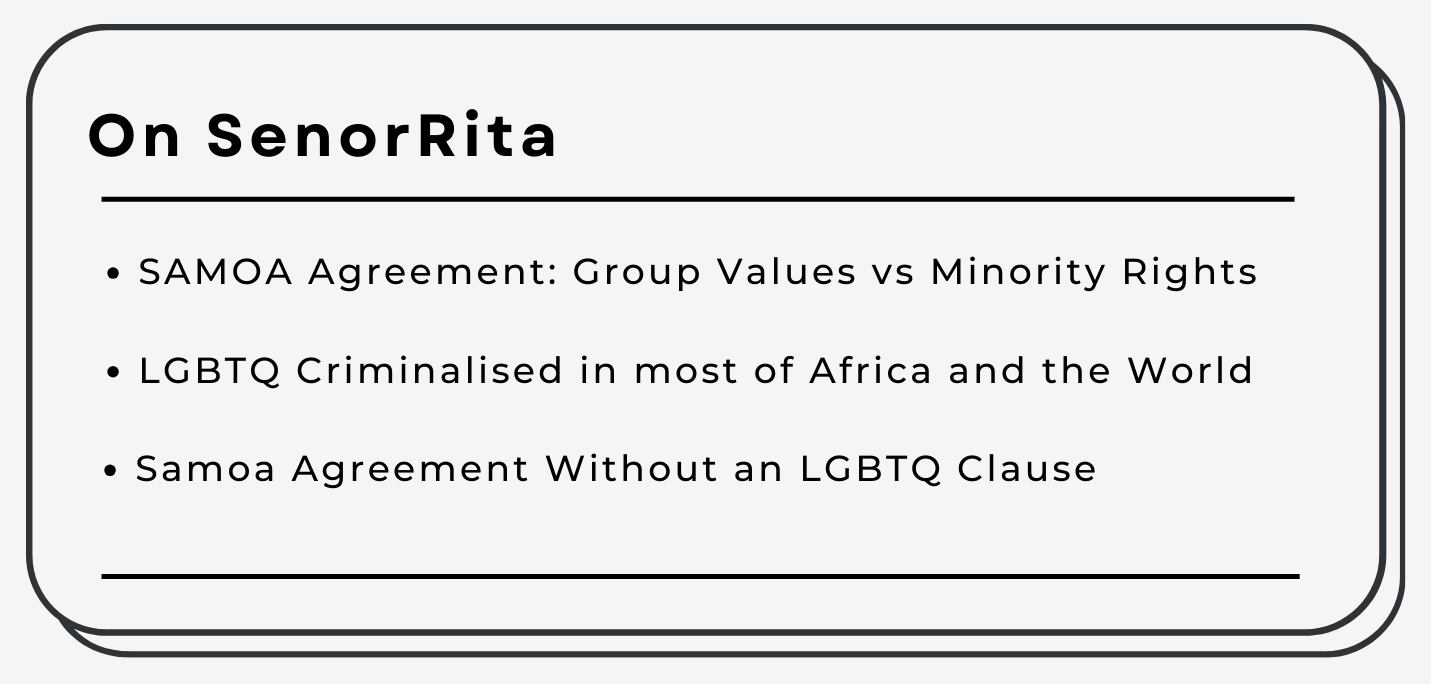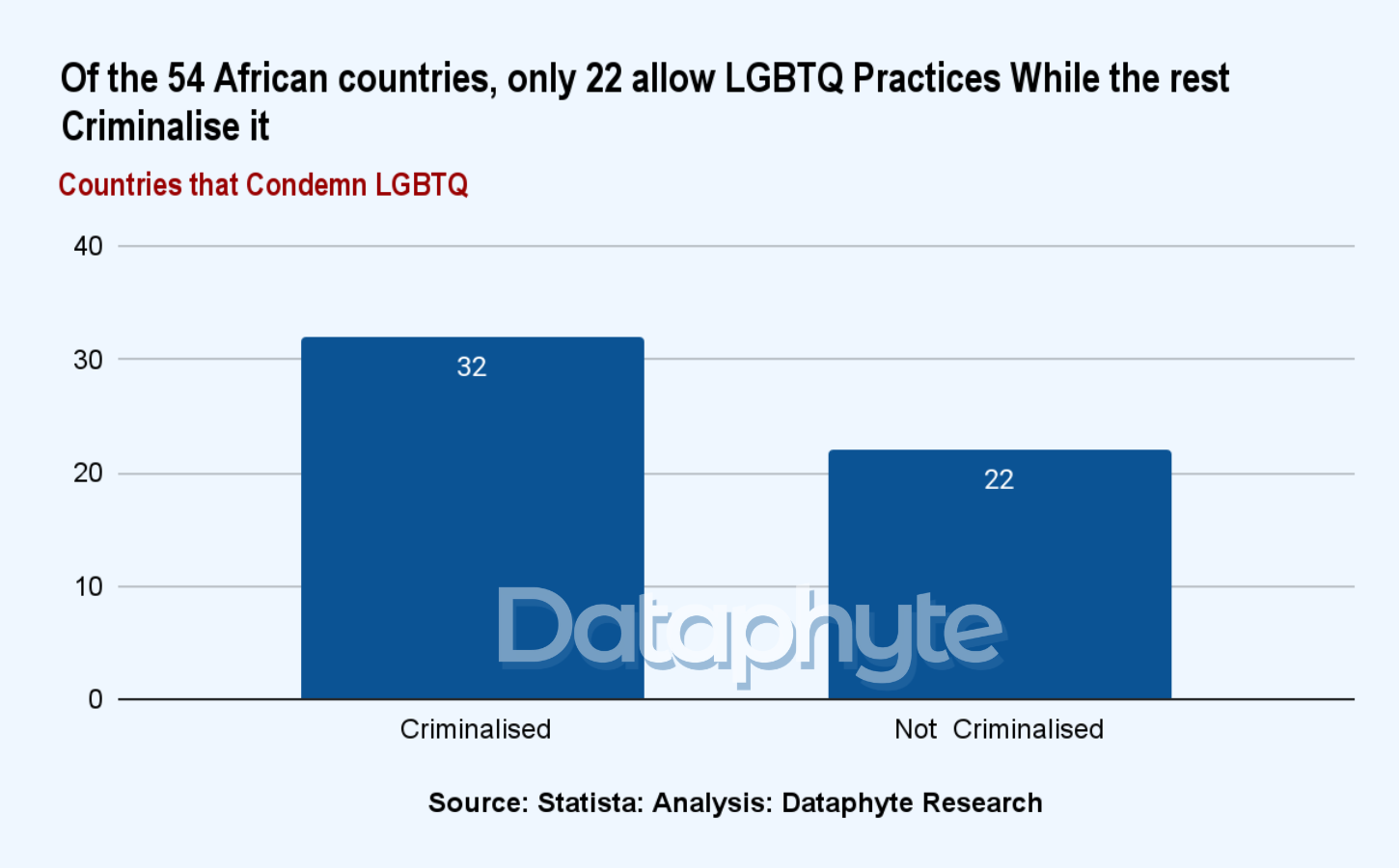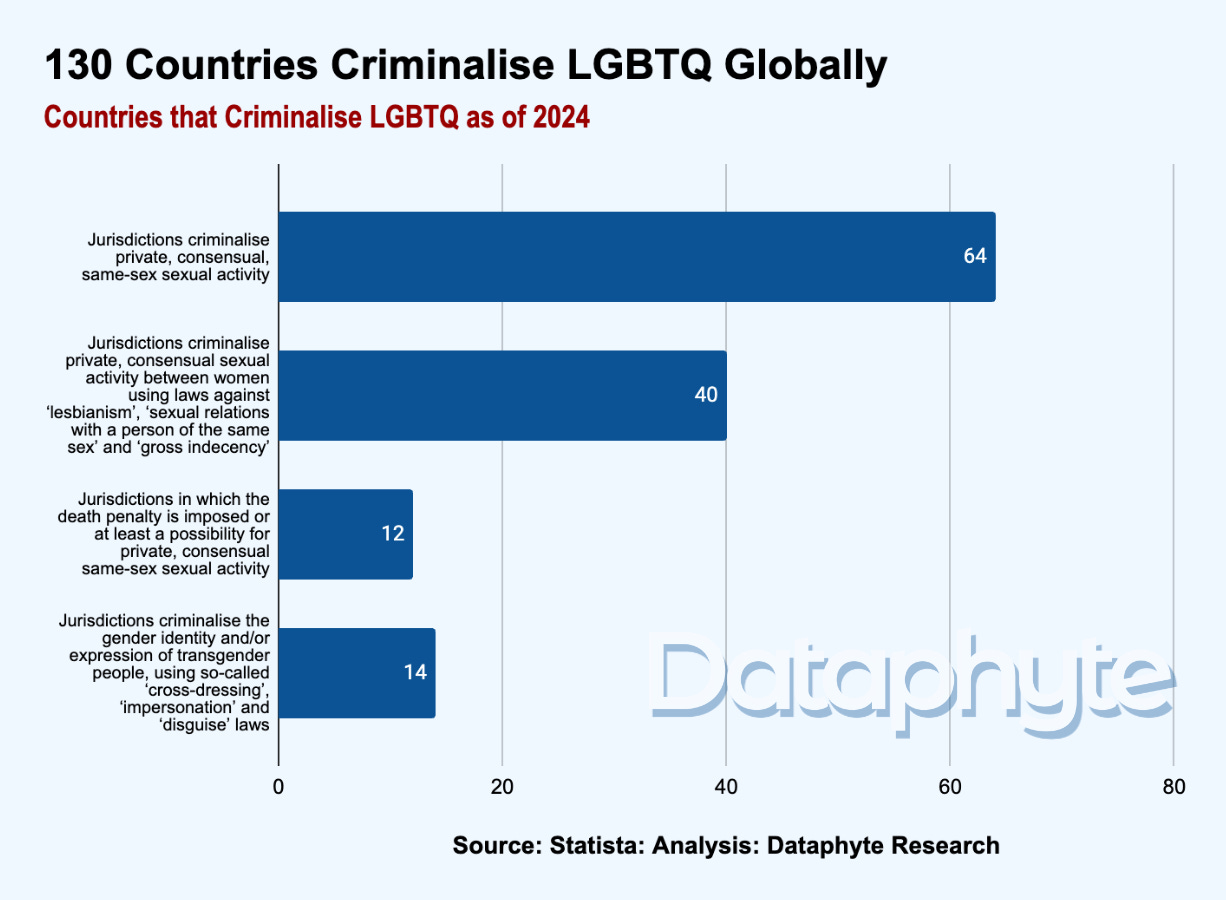ICYMI: SAMOA Agreement: Group Values vs Minority Rights
+LGBTQ Criminalised in most of Africa and the World
The Nigerian Government has signed the SAMOA agreement in partnership with the Organisation of African, Caribbean and Pacific States (OACPS) and the EU member states.
Some persons and groups in Nigeria have expressed concerns that the signing of the SAMOA agreement may affect the cultural and moral values of the majority in the country because the agreement allegedly contains pro LGBTQ clauses.
‘‘LGBTQ’’ is the acronym for Lesbian, Gay, Bisexual, Transgender, Queer or questioning persons or the community.
In the past, the idea of same sex-marriage, transgender and other LGBTQ identities have attracted severe punishments in different states across the country.
The 2014 Same Sex Marriage Prohibition Act, signed into law by former President Goodluck Jonathan, prohibits same sex unions, relationships or/and representations.
In Northern Nigeria, the maximum punishment for non-heterosexual sex in the 12 northern states that have adopted Sharia law is death by stoning. That law applies to all Muslims and to Non-Muslims who consent to be tried by the Shari'a courts.
In the Southern parts of Nigeria and under the secular criminal laws of northern Nigeria, the maximum punishment for same-sex sexual activity is 14 years imprisonment.
LGBTQ Criminalised in most of Africa and the World
In Africa, out of the 54 African countries, homosexual practice is acceptable among 22 countries which accounts for 41% of the total acceptance in Africa.
There are 32 countries that criminalise homosexuality in Africa, making up 59% of the 54 countries on the continent. The LGBTQ identity and behaviour attract differing forms of punishment in these countries.
The 22 countries where homosexual acts are not criminalised are: DR Congo, South Africa, Angola, Benin, Botswana, Burkina Faso, Cabo Verde, Central African Republic, Congo, Côte d’Ivoire, Djibouti, Equatorial Guinea, Gabon, Guinea Bissau, Lesotho, Madagascar, Mali, Mozambique, Niger, Rwanda, Sao Tome and Principe, Seychelles, and Angola.
Nigeria, Somalia and Sudan are among the 32 countries that criminalise homosexual practices.
Meanwhile, some of the LGBTQ forms do not only attract punishment in African countries but globally.
Globally, 64 countries criminalise homosexuality as of 2024. Most of these countries are from Africa, Middle East and Asia while some are from Europe and Oceania.
Also, 40 countries criminalise private or consensual sexual activities between women using law against ‘‘Lesbianism’’.
There are 12 countries that impose the death penalty for private or consensual same sex activities. These countries are Nigeria (northern region), Iran, Saudi Arabia, Somalia, Yemen, Pakistan, Qatar, UAE, Brunei, Afghanistan, Uganda and Mauritiana.
There are also 14 countries that criminalise the expression of transgender people using ‘cross-dressing’, ‘impersonation’, and ‘disguise’ laws.
Samoa Agreement Without an LGBTQ Clause
The Samoa agreement, named after the South Pacific country where it was signed, serves as a vital legal framework for cooperation between the Organisation of African, Caribbean and Pacific States (OACPS) and the European Union (EU) member states.
Nigeria signed the agreement with the aim of promoting sustainable development, fighting climate change and its effects, generating investment opportunities, and fostering increased collaboration among OACPS member states at the international stage.
A fact-check revealed that the agreement does not have any LGBTQ clauses; instead it is meant to promote, protect and fulfill all Human rights among the European Union member states.
The European Union(EU) in its press statement, noted that, “some ACP states were reluctant to see the foundation agreement mention sexual orientation and gender identity (LGBTI rights) – an issue on which there are also differences among EU Member States.”
However, some of the priorities in the SAMOA agreement include: human rights, democracy and governance; peace and security; human and social development; inclusive, sustainable economic growth and development; environmental sustainability and climate change; and mobility/migration.
Also, the EU and all its member states signed the agreement on November 15, 2023. Of the 79 members of the OACPS, 74, including Nigeria, signed before the deadline of June 30, 2024.
Group Values vs Minority Rights
Research shows that in most underdeveloped countries, people are likely to be more concerned about their basic survival. Parents worry about how to obtain clean water and food for their children. Residents may feel that if they stick together and work closely with friends, family and community members, they will lead a more viable and stable life.
Social scientists predict that a group mentality may develop from this, encouraging people to think in similar ways, and discouraging individual differences. Many people may feel that LGBTQ individuals should conform to dominant heterosexual and traditional family norms.
Also, a factor shaping individuals’ attitudes is religion. Countries dominated by Islam, Eastern Orthodoxy and those that have a mixture of conservative and mainline Protestant faiths are more likely to disapprove.
Both Islam and conservative Protestant faiths generate high levels of religious belief. Most religious texts say that homosexuality is problematic. More religious people are more likely to take these religious precepts seriously. When a large proportion of people are highly dedicated to their religion, everyone within the country tends to develop more conservative views.
Thanks for reading this edition of SenorRita. It was written by Kafilat Taiwo and edited by Oluseyi Olufemi.






